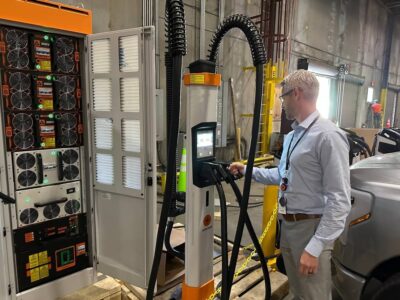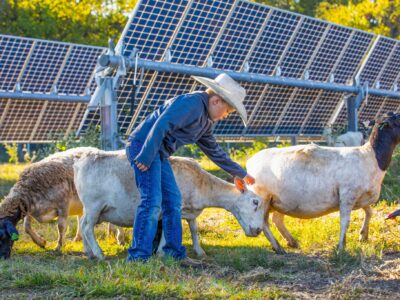Arizona has been navigating how to mitigate the changing environment and climate crisis in a fairly robust manner. Thanks to partnerships among several environmental technology businesses and sports teams based in the Phoenix and Tucson areas, there might be a green marker in the desert, one that is the key to the state’s sustainable future.
Live sports events are a mainstay in the state’s entertainment scene. Since 2012, substantial efforts have been made to offset energy use for air conditioning and trash built up from concessions.
The PGA Tour’s WM Phoenix Open is a major sporting event held in Arizona — its first sponsor was Waste Management. In 2012, the golf tournament became the first net-zero waste golf event. From 2013 to 2021, around 10.4 million tons of waste were converted into new materials through donation, recycling, composting, and reuse. The event has even earned the title “largest zero waste sporting event in the world.”

The efforts continue beyond the golf course. The Phoenix Suns of the NBA partnered with Footprint, a company specializing in plant-based fiber cutlery used at concessions. The move has placed the Footprint Center as the centerpiece of the sustainability goals of Arizona sports. Efforts include replacing trash bins with recycling and composting containers, resulting in 8,200 tons of waste being diverted. The actions of the Suns and Footprint earned the basketball franchise the NBA’s Changemaker of the Year Award for the 2021–22 season.
“We viewed the partnership as an opportunity to touch fans right down the street from where we’re located, and really, we viewed it as an opportunity not just to get feedback from fans on new products and new innovations but also to educate people in the greater Phoenix area about what it means to be sustainable,” said Heather Knox, senior vice president and head of communications for Footprint.
Fan education opportunities included playing games like cornhole while learning about CO2 emissions. Along with an NBA team that challenges for the NBA Finals, Phoenix residents have a lot to cheer for when it comes to the Suns.
However, these sustainability efforts aren’t exclusive to the Suns. Arizona’s Major League Baseball franchise, the Diamondbacks, has enacted eco-friendly practices at their ballpark, Chase Field. New 200 Max-R recycling bins have been placed around the stadium — all made from recycled milk cartons.
For fan engagement, the Diamondbacks offered a refillable cup for season-ticket holders with discounted drinks. The most notable installment was the APS Solar Pavilion, a solar array display that shades walkways for patrons while generating around 100,000 kilowatts of energy. It can power Chase Field for 11 home games.
Another installation was the Urban Garden in 2017. “So, our Urban Garden’s got about 180 square feet that’s going to allow us to grow local produce year-round,” said Graham Rossini, the Diamondbacks vice president of special projects and fan experience, when the garden launched. “It will be able to really generate a lot of produce that we can use in the ballpark and throughout the community as well.”

Professional teams aren’t the only organizations making eco-friendly strides. Arizona State University (ASU) and the University of Arizona (UArizona) individually implemented sustainability plans at the collegiate level.
In 2014, ASU partnered with Green Sports Alliance to make its athletic facilities as sustainable as possible, earning multiple recognitions from the U.S. Green Building Council. The university golf practice facility and Sun Devil Stadium earned awards in 2020 and 2021, respectively.
Sun Devils Athletics reported an 81.06% diversion rate for waste generated, earning ASU first in the U.S. and ninth in the world by The Times Higher Education Rankings for “advancing the United Nations’ Sustainable Development Goals.”
As for the University of Arizona, the Wildcats took a different approach. In partnership with Tucson Electric Power, the school pledged to use renewable energy sources for all grid-based power generation.
Using wind power from a New Mexico-based wind farm and solar from a southeast Tucson generator, the school was set to cut greenhouse gas emissions by nearly a third in May 2021, equal to removing around 14,000 cars off the road. UArizona’s Large Scale Renewable Energy Agreement is setting the stage for more sustainability policies by the university.
New challenges will arise, but with the civic buy-in and education of fans, the Arizona sports scene looks ready to navigate them. Sustainability initiatives in athletics have set The Grand Canyon State up for a bright future.





